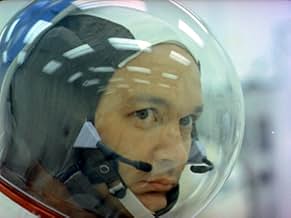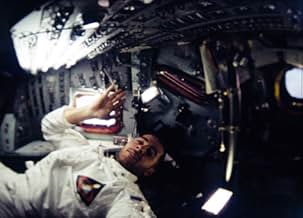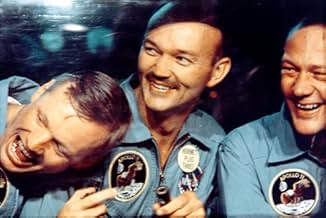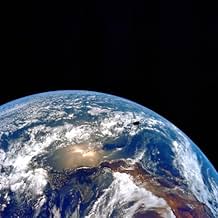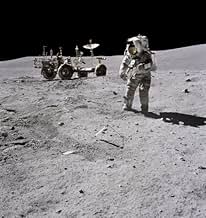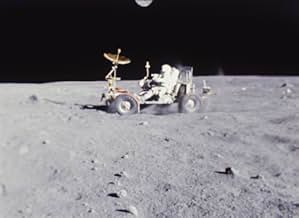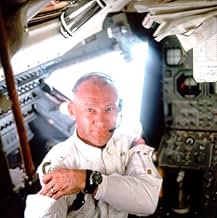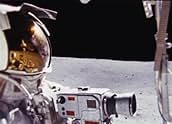IMDb-BEWERTUNG
8,0/10
7029
IHRE BEWERTUNG
Die Besatzungsmitglieder der Apollo-Missionen der NASA erzählen ihre Geschichte in ihren eigenen Worten.Die Besatzungsmitglieder der Apollo-Missionen der NASA erzählen ihre Geschichte in ihren eigenen Worten.Die Besatzungsmitglieder der Apollo-Missionen der NASA erzählen ihre Geschichte in ihren eigenen Worten.
- Auszeichnungen
- 6 Gewinne & 13 Nominierungen insgesamt
Jim Lovell
- Self
- (as James Lovell)
Edgar D. Mitchell
- Self
- (as Edgar Mitchell)
Dave Scott
- Self
- (as David Scott)
William Anders
- Self
- (Archivfilmmaterial)
Neil Armstrong
- Self
- (Archivfilmmaterial)
Stephen Armstrong
- Self
- (Archivfilmmaterial)
Viola Armstrong
- Self
- (Archivfilmmaterial)
Jules Bergman
- Self
- (Archivfilmmaterial)
Frank Borman
- Self
- (Archivfilmmaterial)
Roger B. Chaffee
- Self
- (Archivfilmmaterial)
Yuri Gagarin
- Self
- (Archivfilmmaterial)
Empfohlene Bewertungen
And I mean it. The footage and stories in this movie were like nothing I've ever seen. Nor have many others because this film includes new footage and stories of the Apollo space missions never seen nor heard. I went to an advance screening at the Sarasota Film Festival and I was extremely impressed as was the rest of the crowd. There was a very long standing ovation at the end of the movie. The film includes at least one member from each of the Apollo missions telling there stories of the process they went through while preparing to land on the moon. It contains the remarkable footage filmed by the crew members of each mission. If you truly want to be left see a movie that will leave you full of excitement and amaze you must see this movie. The host of the film said this film was the reason movies should be made and he was nothing short of the truth.
Powerfully put together NASA documentary highlights Apollo 11's historic run amongst other aged adventurers often stirring recollections.
Undoubtedly this is some of the finest public extraterrestrial footage ever married into film, and for that alone this noble salute to a bygone America and the heroes that inhabited it is a must see. Taking a trip to the moon with these brave astronauts has never been captured as intimately, helping viewers begin to feel what it must be like to be looking down from space like never before.
Combined with excellent musical scoring, David Sington's emotional remembrance and vicarious lift-offs belongs in many, many star watcher's collections.
Undoubtedly this is some of the finest public extraterrestrial footage ever married into film, and for that alone this noble salute to a bygone America and the heroes that inhabited it is a must see. Taking a trip to the moon with these brave astronauts has never been captured as intimately, helping viewers begin to feel what it must be like to be looking down from space like never before.
Combined with excellent musical scoring, David Sington's emotional remembrance and vicarious lift-offs belongs in many, many star watcher's collections.
Saw this film at Sundance, the screening reserved for the Grand Jury World Documentary Award Winner. Wow! I have seen many of the preceding documentaries on the history of the American space program, the Apollo program in particular. Where this documentary exceeds all previous efforts was in revealing the humanity of the astronauts. Most other documentaries focus on the politics which motivated and technical hurdles overcome in the American space program. David Sington brilliantly uses only the astronauts voices for narration of facts and more with newly released footage from NASA, as well as a lot of footage we've all seen before. Because of the free rein given to the astronauts in the interviews, you see many sides of each revealed. For instance, Mike Collins (who has heretofore rarely been interviewed) reveals wonderful humor and joy in his accomplishments. You find out more about their worries and fears, how they look back on their work and what they were thinking at the time. They are all revealed as nice guys with whom you would want to spend an afternoon.
Strangely absent, but it works well in the end, was Armstrong. He gives virtually no interviews. In a way, having everyone else talk about him is maybe better than him talking.
And, the various conspiracy theories are dealt with in the end credits. This is a great place to do it. In films we sometimes see the end credits used for humorous out-takes, epilogue commentary, and so forth. By dealing with the conspiracy theories in an appended manner during the credits, the film refuses to elevate them to the level of legitimacy that the remainder of the facts and biographical material, yet still dismisses them. The single best dismissal is this: If it was all faked, why did they fake it so many times? Wouldn't once have been enough?
See this film when it comes to your neighborhood theater, as it has been announced as having a distribution deal. It is worth seeing on the big screen for its amazing visuals.
Strangely absent, but it works well in the end, was Armstrong. He gives virtually no interviews. In a way, having everyone else talk about him is maybe better than him talking.
And, the various conspiracy theories are dealt with in the end credits. This is a great place to do it. In films we sometimes see the end credits used for humorous out-takes, epilogue commentary, and so forth. By dealing with the conspiracy theories in an appended manner during the credits, the film refuses to elevate them to the level of legitimacy that the remainder of the facts and biographical material, yet still dismisses them. The single best dismissal is this: If it was all faked, why did they fake it so many times? Wouldn't once have been enough?
See this film when it comes to your neighborhood theater, as it has been announced as having a distribution deal. It is worth seeing on the big screen for its amazing visuals.
This recently-released documentary had some fantastic footage in it, and a very personal look at many of the astronauts who went to the moon. Overall, that is a very exclusive club: only about a dozen men ever did it in the history of the world and just eight or nine ever stepped foot on it. Most of them are still alive and they discuss their adventures, insights and personal feelings here.
One gets the feeling that the rest of us will never know exactly how beautiful the moon is except to take the astronauts' words about it, because even the pictures on this DVD can't convey that. It just looks dull and gray, but the men say it was spectacular. I believe them.
Since this documentary is about 100 minutes long, you get a lot of information. You also get reminded how close two of the three men who went up on that historic first walk on the moon almost didn't get home alive.
A glaring absence in this documentary - through no fault of the film-makers, is the most famous astronaut of them all: Neil Armstrong, the first man to step foot on the moon! Apparently, he did not want to be part of this film. One of the astronauts, near the very end of this documentary, mentions something briefly about Armstrong being somewhat of a "recluse" now and it "being understandable with what he's gone through." From what I've read, a lot of people have tried to make money off him in shady ways and so now he's withdrawn from the public spotlight. Still, not having his thoughts on this historic mission is a real loss to this film and makes this story seem incomplete.
After a slow first half hour, this really picks up when we travel along with Armstrong's Apollo 11 crew. Seeing slow-motion pictures of the lift-off and great shots of the earth are just awesome. The worldwide reaction to the success of this mission will bring a tear or two to your eyes.
This film, a legacy to the Apollo program and the brave men who ran it, should be in every schoolroom. It would make history a lot more interesting to students.
One gets the feeling that the rest of us will never know exactly how beautiful the moon is except to take the astronauts' words about it, because even the pictures on this DVD can't convey that. It just looks dull and gray, but the men say it was spectacular. I believe them.
Since this documentary is about 100 minutes long, you get a lot of information. You also get reminded how close two of the three men who went up on that historic first walk on the moon almost didn't get home alive.
A glaring absence in this documentary - through no fault of the film-makers, is the most famous astronaut of them all: Neil Armstrong, the first man to step foot on the moon! Apparently, he did not want to be part of this film. One of the astronauts, near the very end of this documentary, mentions something briefly about Armstrong being somewhat of a "recluse" now and it "being understandable with what he's gone through." From what I've read, a lot of people have tried to make money off him in shady ways and so now he's withdrawn from the public spotlight. Still, not having his thoughts on this historic mission is a real loss to this film and makes this story seem incomplete.
After a slow first half hour, this really picks up when we travel along with Armstrong's Apollo 11 crew. Seeing slow-motion pictures of the lift-off and great shots of the earth are just awesome. The worldwide reaction to the success of this mission will bring a tear or two to your eyes.
This film, a legacy to the Apollo program and the brave men who ran it, should be in every schoolroom. It would make history a lot more interesting to students.
From 1969 to 1972, America put 12 men on the moon in nine missions. Eight of the surviving crew members (notably absent is the reclusive Neil Armstrong) talk about their adventures in the documentary In the Shadow of the Moon with less of the engineering and more of the philosophy, a bit different from the dramatic renditions of The Right Stuff, Apollo 13, and HBO'S From Earth to the Moon.
The excellence of this version is the articulate, close up, talking heads of the astronauts, who are more handsome in their late 70's than they were in their late 20's, a testimony to space athletes who keep themselves fit forever. Besides their reflective narrations (for instance, Mike Collins is full of insights and glamorous details, Jim Lovell could do color commentary for any network), the photography, some of it never seen from NASA archives, is memorable. The earth as blue bubble is beautiful.
The documentary strays somewhat from the reality base by peppering the denouement with sappy, semi-religious contemplations from the narrators about "God's work" and the "fragility" motif. But all in all, this Ron Howard production is a first-rate retrospective about an era for which Americans should be proudthe contrast between the visionary Kennedy and the current blind Bush is painful. Maybe we should send him to the moon?
The excellence of this version is the articulate, close up, talking heads of the astronauts, who are more handsome in their late 70's than they were in their late 20's, a testimony to space athletes who keep themselves fit forever. Besides their reflective narrations (for instance, Mike Collins is full of insights and glamorous details, Jim Lovell could do color commentary for any network), the photography, some of it never seen from NASA archives, is memorable. The earth as blue bubble is beautiful.
The documentary strays somewhat from the reality base by peppering the denouement with sappy, semi-religious contemplations from the narrators about "God's work" and the "fragility" motif. But all in all, this Ron Howard production is a first-rate retrospective about an era for which Americans should be proudthe contrast between the visionary Kennedy and the current blind Bush is painful. Maybe we should send him to the moon?
Wusstest du schon
- WissenswertesOf all the astronauts who appeared in the film, only Buzz Aldrin demanded to be paid.
- PatzerThe 1202 alarm was not a programming error in the Apollo Guidance Computer, but rather a hardware design bug, already documented by Apollo 5 engineers. Since the 1202 alarm had occurred only once during testing, NASA decided to go with the radar hardware with known problems instead of using untested newer alternatives with unknown problems.
- Zitate
Jim Lovell: We changed our plans on Apollo 8. They changed the mission from an Earth orbital type to a flight to the Moon. And it was a bold move. It had some risky aspects to it. But it was a time when we made bold moves.
- VerbindungenAlternate-language version of Universum: Im Schatten des Mondes (2009)
Top-Auswahl
Melde dich zum Bewerten an und greife auf die Watchlist für personalisierte Empfehlungen zu.
Details
- Erscheinungsdatum
- Herkunftsländer
- Offizielle Standorte
- Sprachen
- Auch bekannt als
- In the Shadow of the Moon
- Produktionsfirmen
- Weitere beteiligte Unternehmen bei IMDbPro anzeigen
Box Office
- Budget
- 2.000.000 $ (geschätzt)
- Bruttoertrag in den USA und Kanada
- 1.134.358 $
- Eröffnungswochenende in den USA und in Kanada
- 38.281 $
- 9. Sept. 2007
- Weltweiter Bruttoertrag
- 2.161.369 $
- Laufzeit1 Stunde 40 Minuten
- Farbe
- Sound-Mix
- Seitenverhältnis
- 1.85 : 1
Zu dieser Seite beitragen
Bearbeitung vorschlagen oder fehlenden Inhalt hinzufügen

Oberste Lücke
By what name was Im Schatten des Mondes (2007) officially released in India in English?
Antwort





